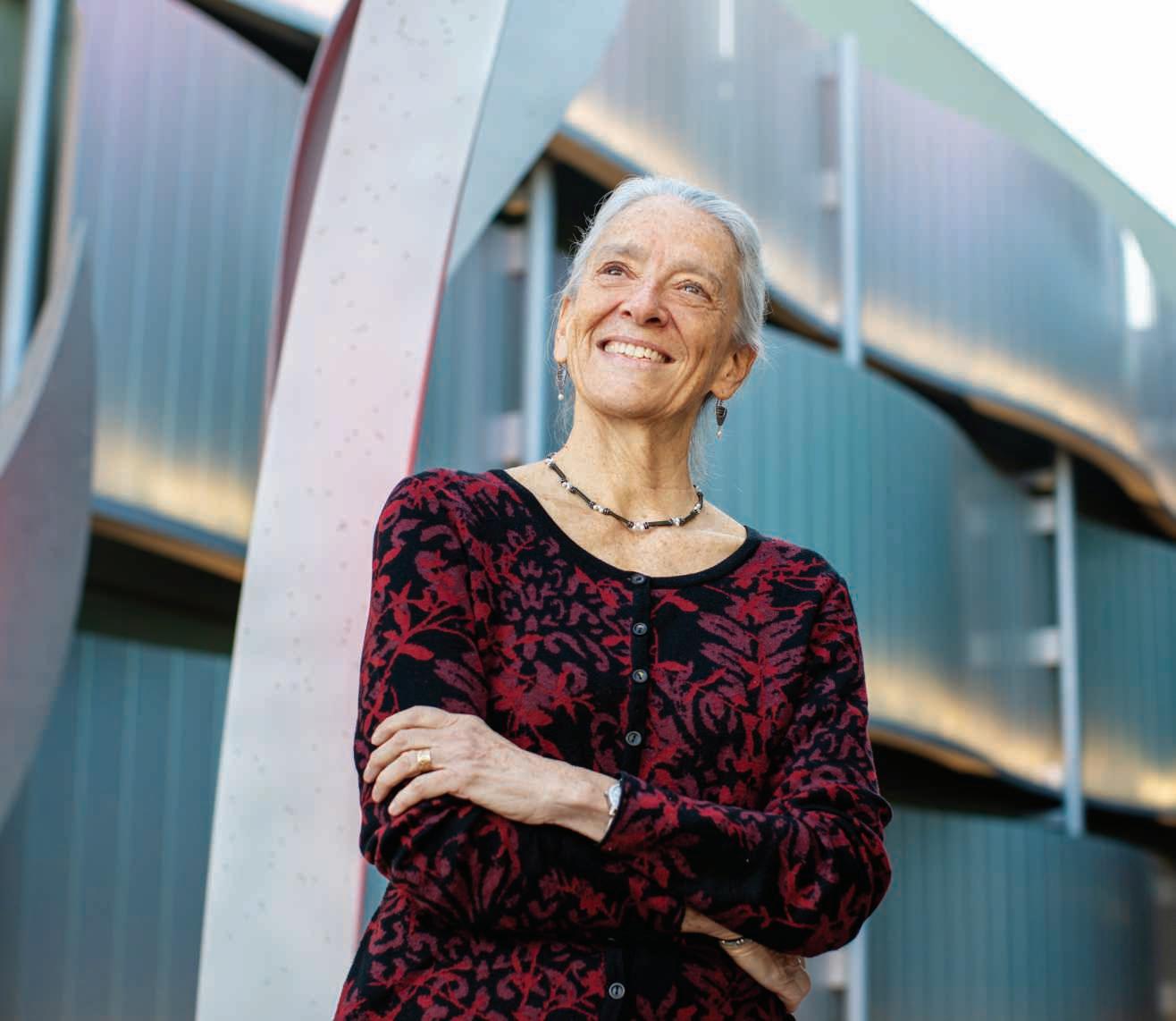
4 minute read
Driving Innovation: Transforming Medicine With the Power of Data
TRANSFORMING MEDICINE WITH THE POWER OF DATA DRIVING INNOVATION
For Dr. Vinay Vaidya, Chief Medical Information Officer at Phoenix Children’s, creating a world-class hospital means harnessing the power of data. Dr. Vaidya wasn’t always in information technology. Before joining Phoenix Children’s in 2009, he was a pediatric intensivist, treating critically ill patients in the intensive care unit (ICU) at the University of Maryland Medical Center. Dr. Vaidya loved his work. He found it deeply gratifying to help a child recover from a life-threatening illness.
But with the advent of electronic medical records, Dr. Vaidya became interested in clinical informatics – a data-driven approach to health care delivery. He began to experiment with creating simple computer programs to help himself and his fellow physicians quickly retrieve and interpret the vast streams of information generated on patients in the ICU. It didn’t take long for Dr. Vaidya to realize that these tools were having a powerful impact – they were improving the quality of his own practice and helping other doctors provide better, more informed care.
“Clinical practice is in my DNA, but technology has helped me support the practices of so many other great physicians,” says Dr. Vaidya. “Now, instead of taking care of 20 to 25 patients, I’m using these tools to help care for hundreds of children who are in the Hospital right now.”
At Phoenix Children’s, the transition from paper to electronic medical records was just the first step in a much bigger data revolution spearheaded by Dr. Vaidya, Dr. Daxa Clarke, Associate Chief Medical Information Officer and their team. Over the past “Data gives
our clinicians superpowers!”
decade, information technologists at Phoenix Children’s have undertaken a groundbreaking effort to put all that digital information to work in the form of electronic dashboards – user-friendly programs that aggregate and visualize patient data across hospital systems, disease profiles and populations.
Today, Phoenix Children’s physicians are using these dashboards to unlock powerful insights into every facet of patient health – from how subtle adjustments in prescriptions can improve a patient’s prognosis, to predicting the likelihood that a patient will suddenly experience a life-threatening event.
Consider a small child admitted to the Hospital for a ruptured appendix. During his stay, he suddenly develops an acute kidney infection so severe that his condition becomes critical – a situation that affects thousands of pediatric patients across the country every year. In the past, there would have been no way to predict such an event. Today, doctors at Phoenix Children’s can not only predict kidney injury, they can prevent it.
Drawing on the clinicians’ knowledge of kidney toxicity and the technologists’ expertise with big data, Dr. Vaidya’s team developed a user-friendly kidney health analytics dashboard populated with data from the electronic medical records of every patient admitted to the Hospital. The dashboard scans patient data in real-time, identifies patients exhibiting symptoms associated with heightened risk of kidney injury, and alerts the attending physician to intervene and take preventative measures. The Kidney Health Dashboard has had a transformative impact: In its first year of operation, the number of acute kidney infection cases declined by 34%.
As a practicing clinician and Dr. Vaidya’s colleague, Dr. Clarke has seen for herself how providers across
Dr Vaidya (left) and Dr. Clarke (right) at a data center at Phoenix Children’s discussing how improvements in data processing can help more patients.
the Hospital are improving their practices using similar tools. Dr. Clarke remembers what it was like to sift through stacks of paper files to review a patient’s case. Now, all that data is summarized, organized and centralized in user-friendly dashboards, and she feels more confident in her own practice as a result. “We now have thousands of alerts checking everything from dosing, to allergies to patient susceptibility to other conditions,” Dr. Clarke says. “The end result is that we’re making things better for our patients, we’re providing better care, and we are a better Hospital for it.”
Dr. Vaidya agrees that the technological advances of the past decade have been incredible for Phoenix Children’s. “Data gives our clinicians superpowers!” he says. “Almost every day we are seeing so many opportunities to use data to help our doctors make faster and safer decisions for patients. By surrounding our specialties with the right technology resources, we can make exponential progress.”
LEADERSHIP CIRCLE: FUELING INNOVATION TOGETHER
Imagine the worst happens. A hospitalized child is in critical condition. Suddenly, their breathing halts; their heart stops. A “code event” has occurred and the clinical team must respond within minutes to prevent permanent organ damage, and even death.
At Phoenix Children’s Hospital, hundreds of children experience abrupt clinical decline requiring urgent intervention every year. So a group of Phoenix Children’s clinicians asked themselves: What if we could anticipate these codes before they occur? Could the electronic medical record make it possible to predict a code event by aggregating, monitoring and analyzing every child’s symptoms in real time?
In 2017, the team pitched the idea to the Phoenix Children’s Hospital Leadership Circle giving group and donors took action. The team was awarded $188,000 to develop and implement the WATCHER system – a screening tool that utilizes discreet data from the electronic medical record to continuously measure a child’s risk of clinical decline, alert the clinical team to urgently intervene and avoid a catastrophic change in the child’s condition.
Leadership Circle is a committed group of community members who come together to support innovative initiatives that make a powerful difference for children and families. Over the past decade, Leadership Circle has fueled the culture of innovation for which Phoenix Children’s has become known. For more information on how to get involved, visit www.phoenixchildrensfoundation.org/giving-groups/leadership-circle.








